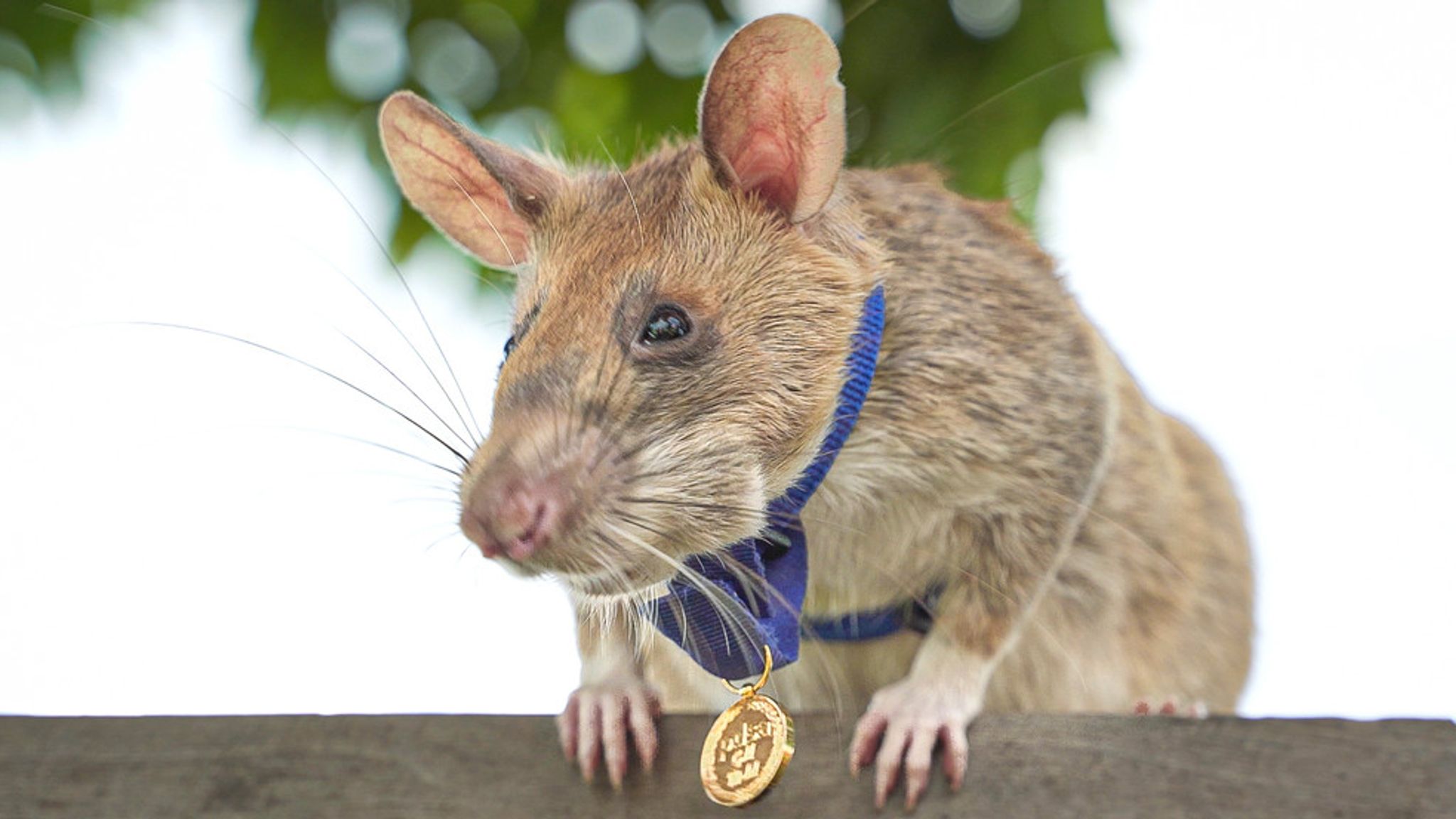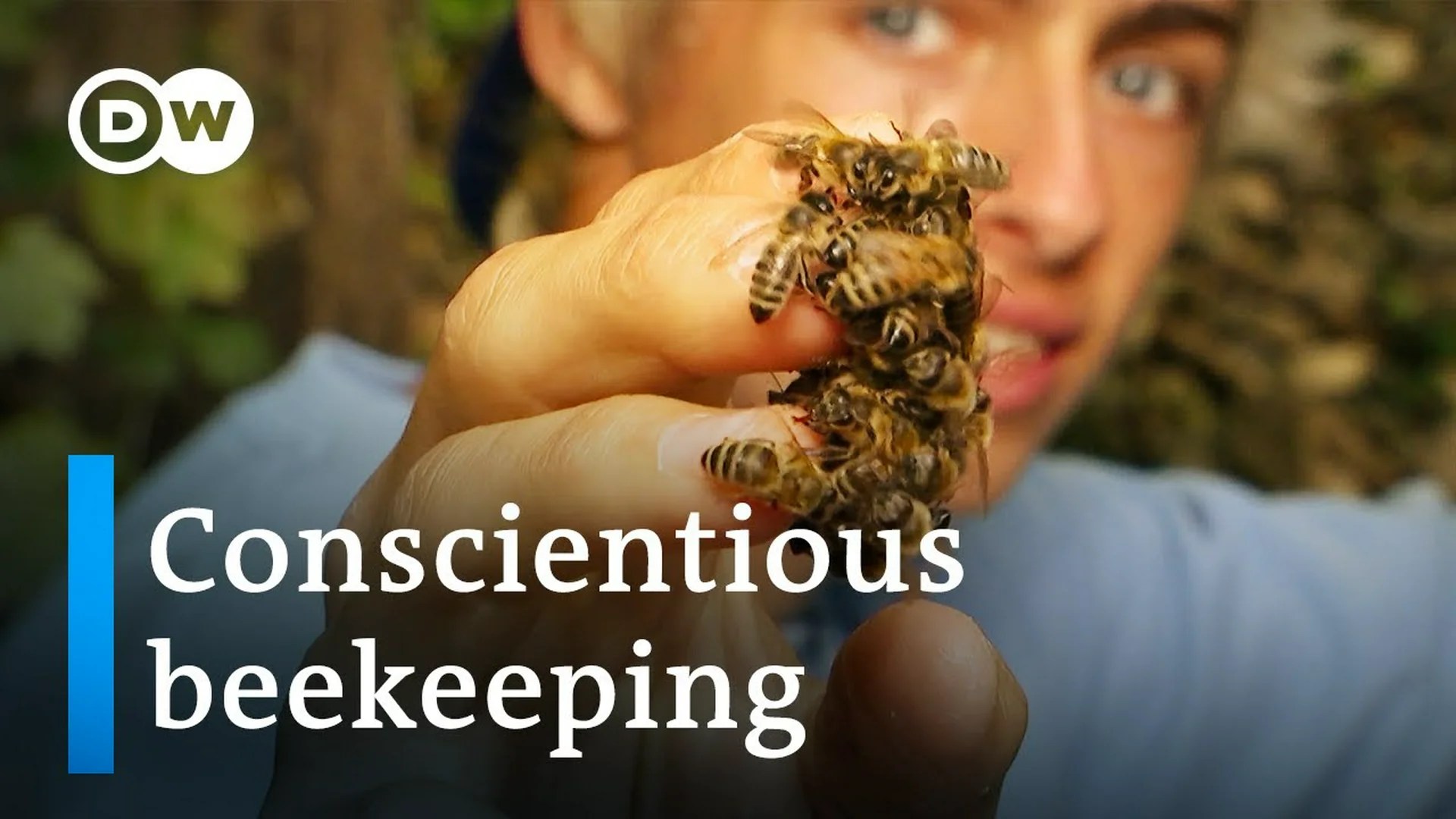In January 2022, Magawa, the African giant pouched rat passed away. He was an unsung hero, one who never knew about his legacy. Magawa sniffed out more than 100 landmines and other explosives in Cambodia during his five years with the international charity APOPOP.
He was recognized with a gold medal for his work detecting deadly land mines on September 25, 2020. The explosives-sniffing rat is also holder of a Guinness World Record for most land mines detected by that species.
What kind of rat is Magawa?
Magawa is a Gambian pouched rat. The Latin name is Cricetomys gambianus. They are commonly known as African giant pouched rat. It is a species of nocturnal pouched rat of the giant pouched gat genus Cricetomys.
The species is among the largest muroids in the world, growing up to 3ft long (0.9m), including the tail. Its tail makes up half of its total length.
![]()
The rat lives in sub-Saharan Africa, ranging geographically from Senegal to Kenya and from Angola to Mozambique.
Fun fact: some people keep this Gambian pouched rat as a pet. Another fun fact: some of these rats have escaped from captivity and became an invasive species in Florida. The CDC and FDA ban the importation of these species in the US because they blame them for the 2003 outbreak of monkeypox.
Who trained Magawa?
The non-profit organization APOPO trained Magawa. After his passing, they said, “His contribution allows communities in Cambodia to live, work, and play, without fear of losing life or limb”.
Magawa retired in 2020 after successfully sniffing explosives for five years. He remained playful until his last days, when he slowed down and lost his appetite.
APOPO is an acronym, standing for Anti-Persoonsmijnen Ontmijnende Product Ontwikkeling, or Anti-Personnel Landmines Removal Product Development in English. It is a Belgian-registered non-governmental organization and US non-profit.
The organization specializes in training southern giant pouched rats to detect landmines and tuberculosis. They call their trained rats HeroRATs.
The organization started as an R&D organization in Belgium in the 1990s, working with the support of research and government grants to develop the concept of Detection Rats Technology.
![]()
One of the co-founders, Bart Weetjens, was a pet owner who came across an article about gerbils being used as scent detectors. He believed that rats, thanks to their strong sense of smell and ability to be trained, could provide means to detect landmines.
In 2003, the organization was awarded a grant from the World Bank, providing funding to research application of the rats for detection of tuberculosis.
Magawa’s Training
The organization uses positive reinforcement methods that give rats food rewards for accomplishing tasks. The initial tasks include finding a target or walking across a surface. After the rats complete the initial training, they are trained in scent discrimination: choosing explosive smells over something else to get a food reward.
Rats have terrible eyesight, but they are ideal for detection of landmines because of their extraordinary sense of smell and their size. Because of their miniature size, they are too light to trigger mines and can enter any surface or space.
Once the rats detect a mine, they lightly scratch atop it, signalling to the handler that they have found explosives. And their reward is a banana.
Full scent detection training takes approximately nine months on average. Then, it is followed by a series of accreditation tests. Once a rat is trained, like Magawa, they are able to work for approximately four to five years before they get retired.
![]()
Training starts with socialization at the age of 5-6 weeks. They are trained in the principle of operant conditioning. They learn to associate a click sound with a food reward, be it banana or peanuts. Once they know that click means food, rats are ready to be trained on a target scent.
APOPO says that the main advantage of training rats and using them over conventional methods is speed. Rats also ignore scrap metal such as old coins, bolts, and similar. They detect only explosives.
Achievements and Records
We said before that Magawa holds the Guinness World Record. The rat has found 71 land mines and 38 unexploded ordnances during his career, making him the most-successful mine-clearing rat.
Magawa could search an area the size of a tennis court in 30 minutes thanks to his excellent sense of smell, memory, and speed. Humans with metal detector would need up to four days to cover the same area.
Magawa was awarded a gold medal by the British veterinary charity People’s Dispensary for Sick Animals in 2020 for his work. It is the highest civilian award an animal can receive, and it was the first time a rat received such an honor.
Magawa was one of the hundreds of hero rats trained since the 1990s by APOPO to detect landmines. In Cambodia, APOPO has detonated more than 6,400 landmines.


![[Anonymous] “We Are Legion – The Story of the Hacktivists” [2012] [Anonymous] “We Are Legion – The Story of the Hacktivists” [2012]](https://wp.fifu.app/documentarytube.com/aHR0cHM6Ly9pbWcueW91dHViZS5jb20vdmkvLXp3RGhvWHBrOTAvbXFkZWZhdWx0LmpwZw/7f5873618a28/anonymous-we-are-legion-the-story-of-the-hacktivists-2012.webp?w=320&h=180&c=0&p=109563)


















